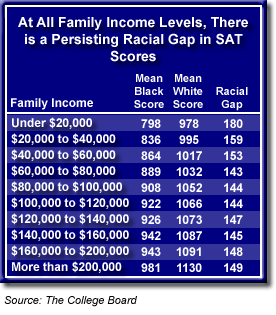It certainly wasn't very covert, when I was growing up as a Millennial here in Putnam County, New York.
I had a Black Jamaican friend in middle school, and when I was with him he was attacked by an Italian guy, and it was for no reason, but a Black guy went into his neighborhood, because he didn't speak to him, or even know him, but just started attacking him.
Another time I was with him, and some Italian skater kids, called him a "Sh*t skin" before shooting off fireworks at him.
But, he (The Jamaican kid) really ended up being a piece of sh*t, he ended up stabbing another Black kid, went to jail, got out and went back for raping a White girl.
Yawn. This is the problem with you millennials you don't know things and you always want to argue like you are sages.
How come you can't tell us what discrimination you've experienced in person for being Black?
I don't think it's common today, because not only do many Whites fear attacking Blacks, due to hate crimes, lawsuits, and feral attacks in response.
But, because the majority of Blacks live in Liberal areas, surrounded by Blacks, and Liberal Whites.
Because I don't have to prove to you that I have been discriminated against when you read the crap posted in paces like this.
You don't think, that's your problem. I live in a rather small conservative town where the police stop blacks at 7 times the rate they do for whites claiming they are looking for drugs. The national rate is blacks get stopped 4 times mote than whites by police who claim to be looking for drugs. The national rate of drug use between backs and whites is the same. SO I don't have to answer your dumb ass questions when these facts sit in your face.
Oh really?
Because Blacks were shown to be pulled over at a similar rate as Whites, however Blacks were more likely to be searched.
While it's true that Blacks go to jail more for drugs than Whites.
Use does not equate selling.
Do you have evidence that Blacks don't sell drugs more than Whites?
Also, there tends to be more Police in Black neighborhoods due to the fact that they are more dangerous.
They probably end up picking up more Black drug users because of that.
In response to you saying blacks are more dangerous: From the book, "The New Jim Crow." by Michelle Alexander - "It is impossible to overstate the significance of race in defining the basic structure of American Society. The structure and content of the original Constitution was based largely on the effort to preserve a racial caste system - slavery - while at the same time affording political and economic rights to whites, especially propertied whites. Under the terms of our country's founding document, slaves were defined as three-fifths of a man, not a real, whole human being. Upon this racist fiction rests the entire structure of American democracy."
Later in the book she explains how the War on Drugs changed community policing into military policing, and that the prison population has grown due to changes in laws and policies, not changes in crime rates. She tells stories about the brutal treatment of minorities. "In every state across our nation, African Americans, particularly in the poorest neighborhoods - are subjected to tactics and practices that would result in public outrage and scandal if committed in middle-class white neighborhoods.
"Although the majority of illegal drug users and dealers nationwide are white, 3/4 of all people imprisoned for drug offenses have been black or Latino. There is, of course, an official explanation for this: crime rates. This explanation has tremendous appeal - before you know the facts - for it is consistent with, and reinforces, dominant racial narratives about crime and criminality dating back to slavery. The truth, however, is that rates and patterns of drug crime do not explain the glaring racial disparities in our criminal justice system. People of all races use and sell illegal drugs at remarkably similar rates. Any notion that drug use among blacks is more severe or dangerous is belied by the data: white youth have about three times the number of drug-related emergency room visits as their African American counterparts."
This is an eye-opening book, if you have the time and desire to read it's 261 pages.
